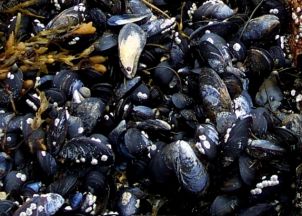 etection of unusually high levels of toxins and an outbreak of diarrhetic shellfish poisoning in south-east England, several shellfish harvesting sites in Scotland have been closed.
etection of unusually high levels of toxins and an outbreak of diarrhetic shellfish poisoning in south-east England, several shellfish harvesting sites in Scotland have been closed.According to the FSA, 70 people in south-east England were reported to have symptoms consistent with diarrhetic shellfish poisoning between 13 and 15 July.
The cases have been linked to the consumption of mussels originating from a particular harvesting area in Shetland, Scotland.
The area has been closed, and as a precautionary measure the industry has voluntarily suspended all commercial harvesting from the waters around Shetland until toxin levels subside.
The mussels had been supplied to a number of restaurants, some through intermediary suppliers.
Shellfish toxins are produced by naturally occurring marine phytoplankton, and detected levels are higher in summer months. The FSA has a sampling programme that regularly monitors shellfish harvesting waters regularly and closes areas where biotoxins are detected at levels which exceed the legal limit.
Diarrhetic shellfish poisoning can result in nausea, vomiting, diarrhoea, and abdominal pain accompanied by chills, headache, and fever. Symptoms generally present themselves between 30 minutes and two or three hours after eating affected shellfish, and can last for two or three days.





